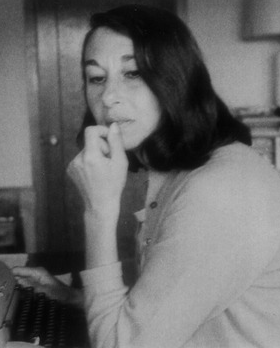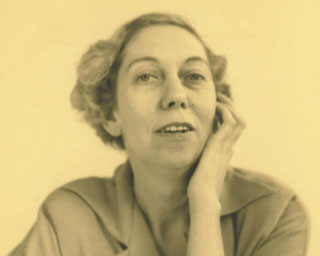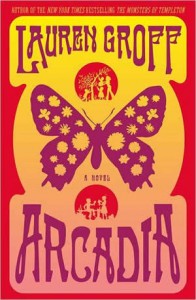 While dystopian fiction never goes out of style, it’s been having a particularly modish run (The Hunger Games, Matched, Divergent, Never Let Me Go). These novels’ societies hover in prophetic futures or alternative presents, in worlds that might have once been ours. Utopian/dystopian fiction (the latter just an angle away from the former) shows what we could be at our absolute finest, but also how the strains of such goodness—and its definitions—become corrupted, co-opted, and undone.
While dystopian fiction never goes out of style, it’s been having a particularly modish run (The Hunger Games, Matched, Divergent, Never Let Me Go). These novels’ societies hover in prophetic futures or alternative presents, in worlds that might have once been ours. Utopian/dystopian fiction (the latter just an angle away from the former) shows what we could be at our absolute finest, but also how the strains of such goodness—and its definitions—become corrupted, co-opted, and undone.
In Lauren Groff’s second novel, Arcadia (Voice/Hyperion, 2012), the community of this same name is a utopia within our actual world—a flock of hippies, vegans, pacifists, and dreamers settling in upstate New York in the late 1960s. The Arcadians live off the land, eschewing commercialism, capitalism, and even pets (keeping them is considered slavery). But to keep the outside world at bay, members must corrupt their own systems. Among themselves, they exchange no money, but they must sell crops, music, and drugs to feed their growing population; their mission is equality for all, but established members occupy a mansion while new arrivals squat in muddy tents; all are supposedly welcome, but as the circle widens, fewer members are interested in the community’s original vision. Such hypocrisies (and law enforcement’s growing interest in its pot plots) increasingly threaten Arcadia’s survival.
 We watch the rise, fall, and memory of Arcadia through the sensitive eyes of Bit Stone, one of the commune’s first children. His story divides the novel into four sets of episodic snapshots: childhood, teenage years, young fatherhood, middle age. When he tastes his first forbidden candy bar from “outside,” young Bit cringes at its sweetness—what, we wonder, will this child make of the rest of our world?
We watch the rise, fall, and memory of Arcadia through the sensitive eyes of Bit Stone, one of the commune’s first children. His story divides the novel into four sets of episodic snapshots: childhood, teenage years, young fatherhood, middle age. When he tastes his first forbidden candy bar from “outside,” young Bit cringes at its sweetness—what, we wonder, will this child make of the rest of our world?
Groff’s prose is lush and lovely throughout, as idealistic as her Arcadians’ vision. The close, close, close-third person, as rendered here in the present tense, casts Bit’s childhood in a sensual fog. While all of his imaginings and perceptions are gorgeously written, some scenes almost yearn for more breathing room—distance, perspective—between narrator and character. But this is a small and only occasional complaint. More often, Groff uses this too-close angle to great (and conscious) effect, and near the book’s end, Bit admires the opposite quality in his daughter: “Already, she watches life from a good distance.”
One of Arcadia’s richest scenes unfolds during Bit’s teen years: late at night, he joins other teens in the Dormitory while the smaller children sleep; they strew moss and acorns about, sprinkle glitter on the kidlets’ pillows, and wedge a dozen butterfly wings beneath the windows…a prank: the fairies were here! The fairies were crushed?! The teens, who anticipated delight in disillusioning, are left deeply unsettled:
Childhood is such a delicate tissue; what they had done this morning could snag somewhere in the little ones, make a dull, small pain that will circle back again and again, and hurt them in small ways for the rest of their lives.
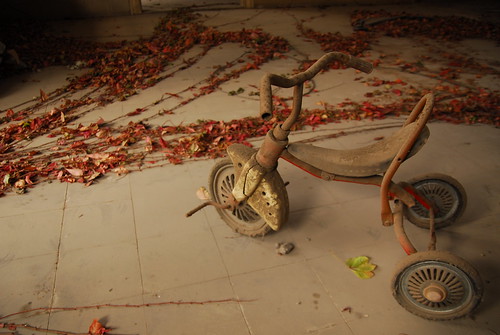
Even decades after Arcadia’s demise, Bit observes his community’s life-long influence—the “dull, small pain”; the gift of seeing the world differently—on the people who grew up within it. The adult Bit, living in Manhattan, teaching photography, has a less exotic life than his younger self, but he is interesting to read about because of the distance he has achieved, the things and people he has lost. As narrator-observer, he gains strength in perspective, in watching, recording, and remembering through his photographs.
In a surprise turn, the book’s final section reveals a dystopic future—extreme climate change, a bird flu pandemic—alarmingly set in 2018. As in, just a few years from now. Groff permits no comfortable distance between the reader’s world and this future; again, she takes us too close for comfort, and now the effect is nothing short of powerful. We have to wonder: If more people had lived like Arcadians, would things be better? And are Arcadia’s former inhabitants better suited, or less so, to carve out a future in a world of diminishing resources?
Near the novel’s end, Bit and his daughter, Grete, encounter Glory, an Amish woman who once watched the Arcadian experiment from her own would-be-utopic community. Glory views the world as either/or:
Freedom or community. One must decide the way one wants to live. I chose community.
Why can’t you have both? says Grete, frowning. I think you could have both.
You want both, Glory says, you are destined to fail.
Yet Groff’s characters—and arguably, her readers—survive precisely by needing both, by striving to get the balance right. It’s why we’re drawn to books about ideal societies and their opposite, why we vote, why we have children, why we love other human beings. Arcadia may tell the story of a failed social experiment, but it’s about so much more—the seeds of what remains, of what succeeds: the fruits and consequences and necessary questions of living consciously.
Further Links and Resources
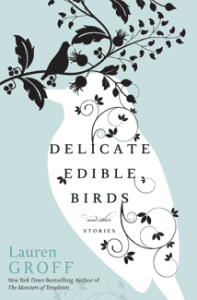
- Courtesy of NPR, read an excerpt from Arcadia.
- Here is Stephen King’s interview with Lauren Groff.
- In this podcast, Groff reads Alice Munro’s story “Axis” and discusses it with Deborah Treisman.
- Indulge in what Anne argues is one of the best short stories ever written, Groff’s “L. Debard and Aliette,” in the Atlantic Monthly. It also appears in Groff’s collection, Delicate, Edible Birds.



